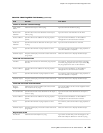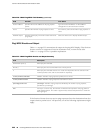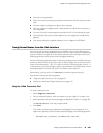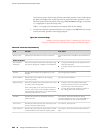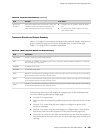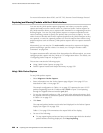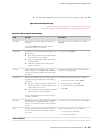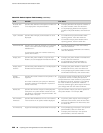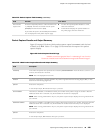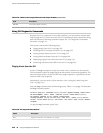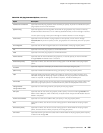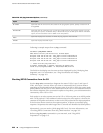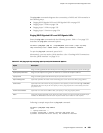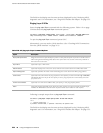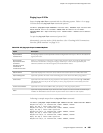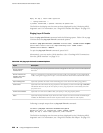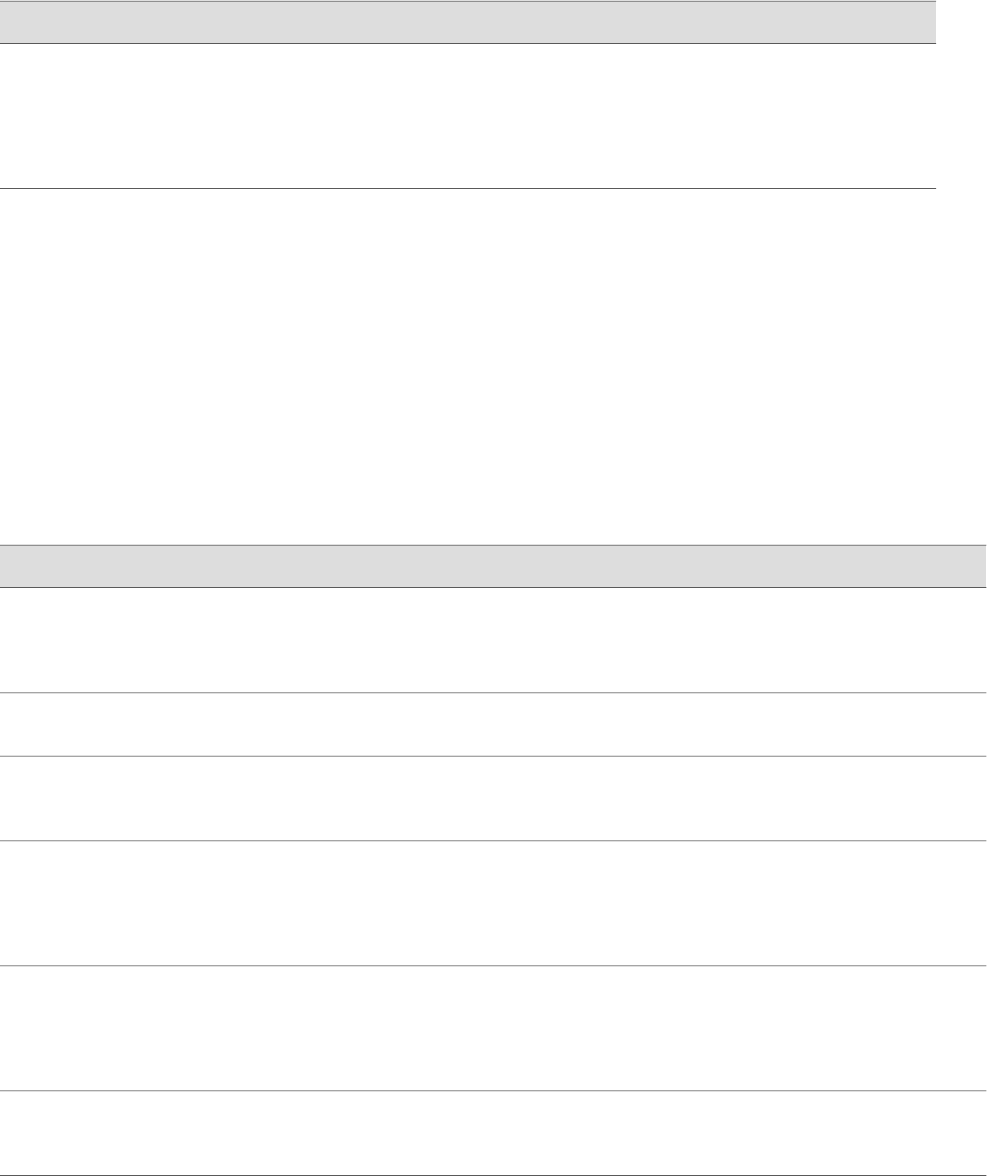
Table 114: Packet Capture Field Summary (continued)
Your ActionFunctionField
■
To save the captured packet headers to a file,
select this check box.
■
To decode and display the packet headers on
the J-Web page, clear this check box.
Writes the captured packets to a file in PCAP format
in /var/tmp. The files are named with the prefix
jweb-pcap and the extension .pcap.
If you select this option, the decoded packet headers
are not displayed on the packet capture page.
Write Packet
Capture File
Packet Capture Results and Output Summary
Figure 25 on page 229 shows J-Web packet capture output from router1, with the level
of detail set to brief. Table 115 on page 229 summarizes the output in the packet
capture display.
Figure 25: Packet Capture Results Page
ERROR: Unresolved graphic fileref="s020268.gif" not found in
"\\teamsite1\default\main\TechPubsWorkInProgress\STAGING\images\".
Table 115: J-Web Packet Capture Results and Output Summary
DescriptionField
Time when the packet was captured. The timestamp 00:45:40.823971 means 00 hours (12.00 a.m.), 45
minutes, and 40.823971 seconds.
NOTE: The time displayed is local time.
timestamp
Direction of the packet. Specifies whether the packet originated from the Routing Engine (Out), or was
destined for the Routing Engine (In).
direction
Protocol for the packet.
In the sample output, IP indicates the Layer 3 protocol.
protocol
Hostname, if available, or IP address and the port number of the packet's origin. If the Don't Resolve
Addresses check box is selected, only the IP address of the source is displayed.
NOTE: When a string is defined for the port, the packet capture output displays the string instead of the
port number.
source address
Hostname, if available, or IP address of the packet's destination with the port number. If the Don't Resolve
Addresses check box is selected, only the IP address of the destination and the port are displayed.
NOTE: When a string is defined for the port, the packet capture output displays the string instead of the
port number.
destination address
Protocol for the packet.
In the sample output, TCP indicates the Layer 4 protocol.
protocol
Capturing and Viewing Packets with the J-Web Interface ■ 229
Chapter 12: Using Services Router Diagnostic Tools



